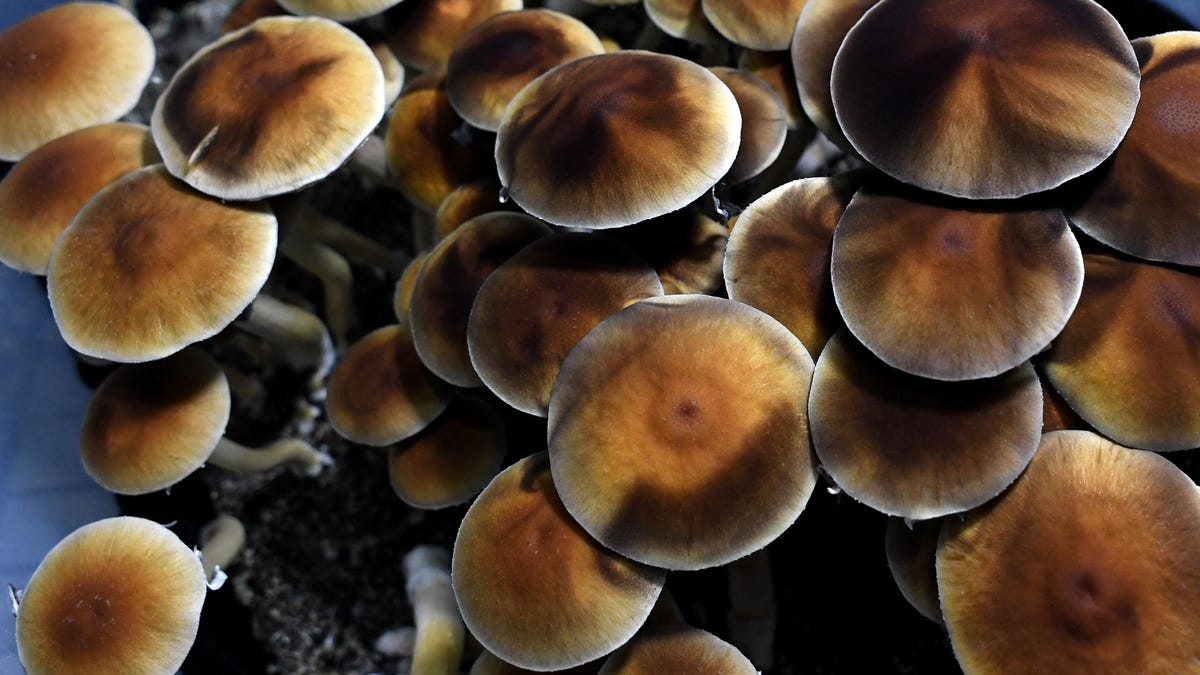WHAT IS PSILOCYBIN?
Psilocybin, the active component of “magic mushrooms”, a serotonergic agonist, targets the 5-HT2A receptors in the central nervous system and gastrointestinal tract. Serotonin, known as the “happy hormone,” present in SSRI antidepressants like fluoxetine, plays a crucial role in modulating mood, cognition and memory. With 90% of serotonin receptors located in the gut, psilocybin’s physical side effects can mirror those of antidepressants, leading to symptoms like nausea, diarrhoea and constipation.
Psilocybin, from a medical perspective, has an excellent safety profile. Evaluating any adverse effects should involve weighing the risk/benefit ratio relative to the individual’s condition. For those battling with severe, chronic depression or suicidal thoughts, the potential relief offered by psilocybin may outweigh the risks associated with its side effects.
In comparison to LSD, psilocybin is viewed as a gentler option due to its shorter duration of action (5-6 hours vs. LSD’s 10-12 hours). While LSD is often referred to as an “atomic bomb” of psychedelics, psilocybin may be likened more to a “weapon of conventional strength.” In settings like palliative care, where patients may lack the stamina to endure the prolonged effects of LSD, psilocybin may offer a more manageable option.
POTENTIAL EFFECTS
Physiologically, serotonin’s impact on blood vessels can vary, leading to either constriction or dilation, affecting blood pressure levels. In rare cases, activation of the 5-HT2A receptor by psilocybin can trigger coronary artery spasm, potentially elevating blood pressure by around 10mmHg. This increase, akin to the spike sometimes experienced in medical settings due to anxiety, may push someone with an already high blood pressure into a critical situation. It is advisable to have a baseline blood pressure check before psilocybin use.
On a psychological level, psilocybin can induce visual distortions, unsettling thoughts, paranoia, panic and mild anxiety. Individuals may become acutely aware of bodily sensations like their heartbeat or blood flow, with fear and delusions possibly leading to self-harm or aggression. However, adverse effects are generally minimal and are heavily influenced by the individual’s environment, emotional state and mindset.
Challenging experiences, if properly integrated, can offer profound insights and should not be necessarily dismissed as failures.
EXCLUSIONS AND CONSIDERATIONS
The Human Hallucinogen Research Guidelines outline potential exclusions for individuals considering working with psilocybin. Exclusions may involve a personal history of psychosis, severe psychiatric disorders or a family history of certain mental health conditions like psychosis, schizophrenia or bipolar disorder. Other factors such as hypertension, cardiac disease and alcohol abuse are also considered.
Assessing a participant’s psychiatric history is crucial. There are varied opinions on which client groups should be excluded from psilocybin work. While prolonged trips and acute psychosis are rare, they can occur. In a clinical trial setting the risk is minimised. Support groups and guidance from a trained therapist specialising in psychedelics can help individuals navigate and derive positive insights from such experiences.
It is additionally important to perform an assessment of any medications that may interact with psilocybin. Certain serotonergic medications and psychostimulants can affect its effectiveness and potentially lead to adverse outcomes. Discontinuing antidepressants like SSRIs or SNRIs should be done under medical supervision to mitigate risks. Balancing medication use with psilocybin work depends on individual expectations and desired outcomes.
When considering medications that interact with psilocybin, certain serotonergic medications, including commonly used antidepressants like SSRIs, SNRIs, MAOIs, tricyclics, St John’s Wort and 5HTP, as well as some anti-nausea medications such as ondansetron and metoclopramide, along with dextromethorphan cough medicine found in products like Benylin, may impede the effectiveness of psilocybin. This could potentially lead to a reduced reaction to psilocybin.
Psychostimulants like Ritalin, an amphetamine used to treat ADHD, have the potential to enhance the stimulant effects of psilocybin. This combination may increase the likelihood of psychotic symptoms and cognitive enhancement effects, whilst potentially reducing the chances of having an ego-dissolution experience.
While these medications can impact the effectiveness of psilocybin, the interactions may not always result in a strict contraindication.
Alcohol and psilocybin should never be combined. Alcohol impairs the body’s ability to metabolise psilocybin, increasing the risk of adverse effects. Research shows that most severe reactions to psilocybin, such as suicidality, occur when alcohol is also consumed. Do not drink alcohol when using psilocybin.
Another significant risk factor when working with psilocybin is accidents. Engaging in activities like driving, operating heavy machinery, caring for small children or being in a hectic or hazardous environment during, or after a psilocybin experience can be unsafe. Try to prioritise safety and avoid such situations to prevent any harm.
AND FINALLY…….
Psilocybin, known for its relative safety, requires some precautions:
– Understand the substance you are consuming.
– Be aware of your health status, including getting a blood pressure check.
– Undergo a medical contraindication risk assessment, including any medicines you are taking.
– Establish a secure environment before, during and after the experience.
– Conduct a safety and risk assessment to prevent accidents during, and for at least eight hours post-experience.
– Avoid consuming alcohol before, during, and directly after a psilocybin session.
– Make plans to find integration support as you prepare and for after your experience.
– For advice on psychedelics, medicines and pharmacology, please see: https://www.spiritpharmacist.com/
PLEASE NOTE: This blog is intended for information only and does not substitute medical advice. I do not advocate the illegal use of substances.

